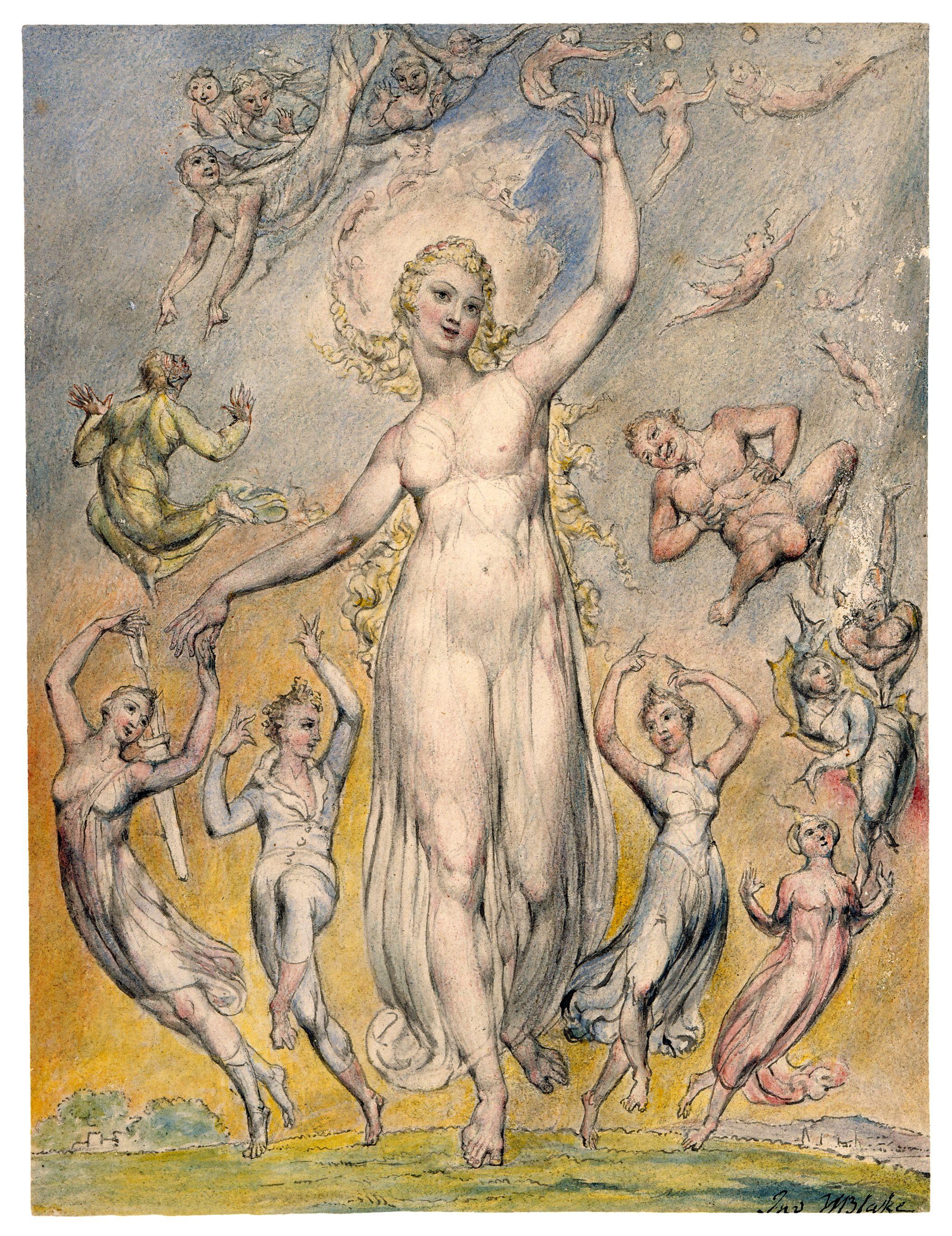In his manuscript notes accompanying his watercolors Blake singles out these verses from Milton to illustrate:
Descriptions of Illustrations to Milton's L'Allegro and Il Penseroso, (E 682)
1 "Heart easing Mirth.
Haste thee Nymph & bring with thee
Jest & Youthful Jollity
Quips & Cranks & Wanton Wiles
Nods & Becks & wreathed smiles
Sport that wrinkled Care derides
And Laughter holding both his Sides
Come & trip it as you go
On the light phantastic toe
And in thy right hand lead with thee
The Mountain Nymph Sweet Liberty"
Blake states:
"These Personifications are all brought together in the First
Design. Surrounding the Principal Figure which is Mirth herself"
In his comment Blake makes it clear that his images in this illustration are personification of states; each figure represents a state that Milton mentioned.
Of particular interest is Liberty since Blake says:
"JERUSALEM IS NAMED LIBERTY
AMONG THE SONS OF ALBION" (Jerusalem, Plate 26, (E 171))
Miscellaneous Poems, Song, (E 414)
"I love the laughing vale,
I love the echoing hill,
Where mirth does never fail,
And the jolly swain laughs his fill."
Satiric Verses and Epigrams, (E 502)
"The Angel that presided oer my birth
Said Little creature formd of Joy & Mirth
Go love without the help of any King on Earth"
Letters, To Trusler,(E 702)
"Fun I love
but too much Fun is of all things the most loathsom. Mirth is
better than Fun & Happiness is better than Mirth--I feel that a
Man may be happy in This World."
This
image can be dramatically enlarged by right clicking and selecting open
in a new window. The enlarged image will be highly detailed..


No comments:
Post a Comment